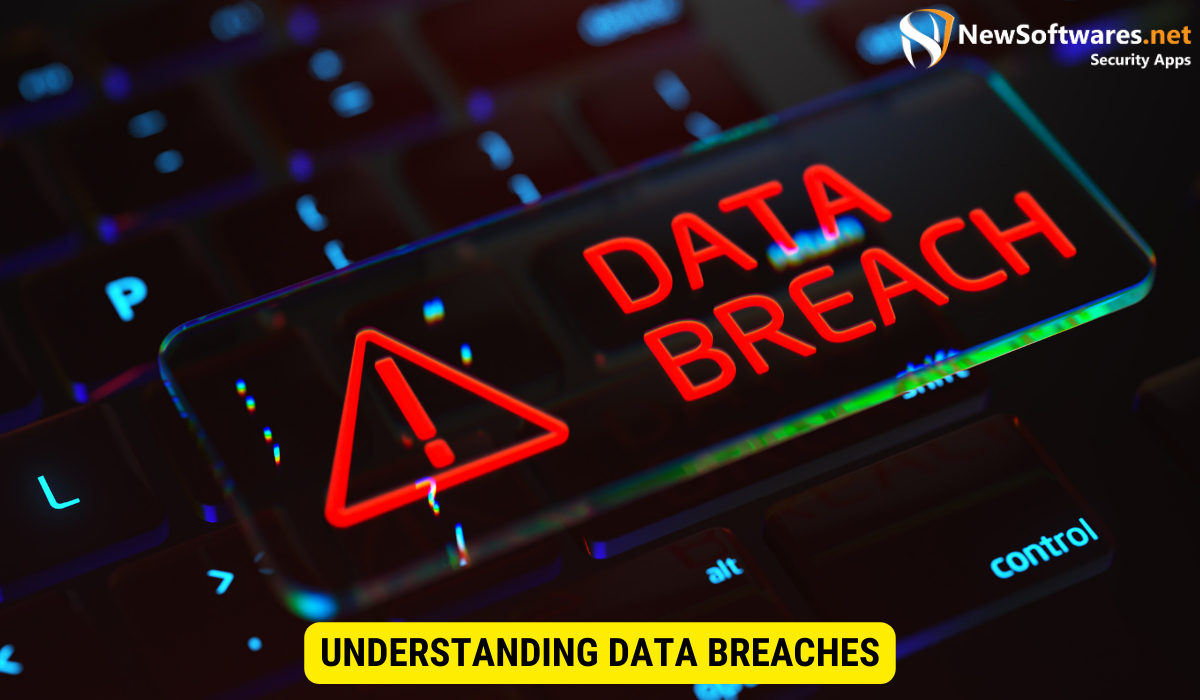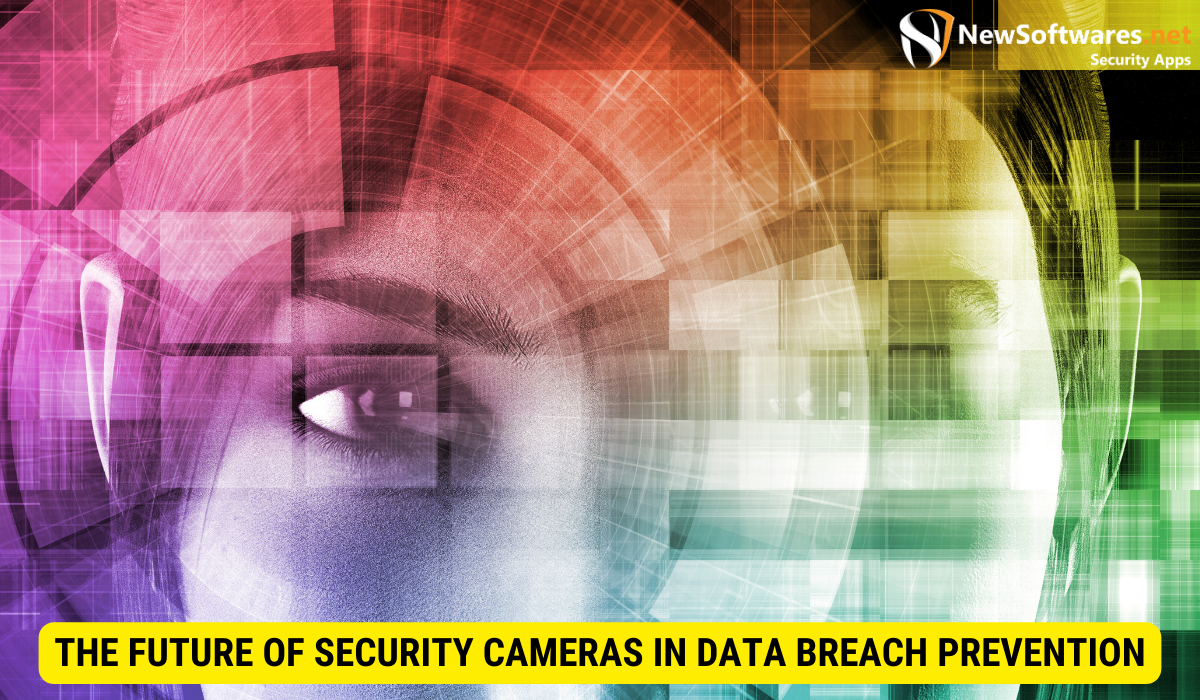Security cameras are essential in deterring unauthorized access and providing evidence, but they cannot prevent cyberattacks. They should be part of a comprehensive security strategy that includes other measures like encryption and access controls.
In today’s interconnected world, data breaches have become a growing concern for businesses of all sizes and industries. The potential financial and reputational damage caused by data breaches is significant, making it crucial for organizations to invest in robust security measures. One such measure is the use of security cameras, which play a vital role in preventing data breaches. By monitoring physical spaces and capturing evidence, security cameras contribute to the overall data protection strategy of an organization.
Understanding Data Breaches

Data breaches occur when unauthorized individuals gain access to sensitive or confidential information, exposing it to potential misuse or theft. These breaches can involve personal information, financial data, intellectual property, or any other data that may be valuable to attackers. The impact of data breaches can be devastating, leading to financial losses, legal implications, a loss of customer trust, and damage to a company’s reputation.
The Definition of Data Breaches
A data breach can be defined as any incident where confidential or sensitive information is accessed, disclosed, or compromised, without authorization. This unauthorized access can occur in various ways, such as hacking into computer systems, exploiting vulnerabilities in software or infrastructure, or through physical access to sensitive areas.
Data breaches can happen to any organization, regardless of its size or industry. Attackers are constantly evolving their techniques and strategies, making it challenging for businesses to stay ahead of the game. It is crucial for companies to have robust security measures in place to protect their data and prevent unauthorized access.
One common type of data breach is a phishing attack, where attackers send deceptive emails or messages to trick individuals into revealing their login credentials or other sensitive information. These emails may appear to be from a trusted source, such as a bank or a well-known company, making it difficult for recipients to identify them as fraudulent. Once the attackers obtain the login credentials, they can gain unauthorized access to the victim’s accounts and potentially steal valuable data.
The Impact of Data Breaches on Businesses
The impact of data breaches on businesses can be far-reaching. Financially, companies may face significant costs associated with investigating the breach, notifying affected individuals, offering credit monitoring services, legal actions, and potential regulatory fines. These costs can quickly add up and have a detrimental effect on the company’s bottom line.
Moreover, the loss of customer trust and damaged reputation can have long-term consequences for a business. Customers may become wary of sharing their personal information with the company, leading to a decline in customer loyalty and a decrease in revenue. Rebuilding trust with customers can be a challenging and time-consuming process, requiring transparent communication, enhanced security measures, and a commitment to protecting customer data.
In addition to financial and reputational impacts, businesses may also face legal ramifications following a data breach. Depending on the nature of the breached data and the applicable laws, companies may be subject to lawsuits from affected individuals seeking compensation for damages. Regulatory bodies may also impose fines or penalties for failing to adequately protect sensitive information, further exacerbating the consequences of a data breach.
It is essential for businesses to prioritize data security and invest in robust cybersecurity measures. This includes implementing strong access controls, regularly updating software and systems, conducting thorough risk assessments, and providing comprehensive employee training on data protection best practices. By taking proactive steps to prevent data breaches, businesses can mitigate the potential impact and safeguard their sensitive information.
The Importance of Security Cameras
Security cameras have long been a staple in physical security measures, but their significance in preventing data breaches should not be underestimated. While they are not a standalone solution, security cameras serve as a critical component of a comprehensive security strategy.
The Function of Security Cameras
Security cameras monitor and record activities within designated areas. They act as a visual deterrent, discouraging unauthorized access and suspicious behavior. In the event of a data breach, security camera footage can provide valuable evidence to identify the individuals involved and the methods they employed. This evidence can aid in investigations, help recover stolen data, and build a case against the culprits.
The Evolution of Security Camera Technology
Security camera technology has evolved significantly over the years, becoming more advanced and sophisticated. Modern security cameras offer features such as high-resolution video, night vision capabilities, motion detection, facial recognition, and remote access through mobile devices. These advancements enhance the overall effectiveness of security cameras in preventing data breaches, providing clearer and more actionable video evidence.
Security Cameras and Data Protection
The integration of security cameras into a comprehensive data protection strategy is essential for minimizing the risk of data breaches.
How Security Cameras Enhance Data Security
Security cameras contribute to data security by monitoring areas where sensitive data is stored or processed. They help ensure that only authorized personnel have access to these areas, thereby reducing the likelihood of unauthorized access or data theft. The presence of security cameras can also act as a deterrent, discouraging employees or visitors from engaging in suspicious activities that may lead to data breaches.
The Limitations of Security Cameras in Data Protection
While security cameras are an effective tool for preventing data breaches, it is crucial to recognize their limitations. Security cameras primarily address physical security concerns and cannot prevent data breaches that occur through other means, such as cyberattacks or social engineering techniques. Therefore, businesses must implement additional security measures, such as firewalls, encryption, access controls, and employee training, to ensure comprehensive data protection.
Integrating Security Cameras into a Comprehensive Security Strategy
To maximize the effectiveness of security cameras in preventing data breaches, it is essential to integrate them into a multi-layered security approach.
The Role of Security Cameras in a Multi-Layered Security Approach
A multi-layered security approach involves implementing various security measures to cover different aspects of data protection. Security cameras enhance this approach by providing a physical security layer that complements other measures such as network security, encryption, and access controls. By combining these layers, organizations can create a comprehensive security strategy that addresses potential vulnerabilities from multiple angles.
Best Practices for Implementing Security Cameras
Implementing security cameras effectively requires careful planning and adherence to best practices. Some key considerations include identifying critical areas to monitor, strategically placing cameras to maximize coverage, ensuring proper lighting conditions, regularly reviewing and analyzing footage, and ensuring the security and integrity of the camera system itself. It is also crucial to comply with any legal or regulatory requirements related to video surveillance.
The Future of Security Cameras in Data Breach Prevention

As technology continues to advance, security cameras will continue to evolve and play an increasingly important role in data breach prevention.
Emerging Trends in Security Camera Technology
Recent trends in security camera technology include the integration of artificial intelligence (AI) and machine learning capabilities. These advancements enable security cameras to detect and analyze anomalies, identify suspicious behavior or patterns, and alert security personnel in real-time. Additionally, advancements in video analytics and cloud storage further enhance the efficiency and effectiveness of security cameras.
Predictions for Security Cameras and Data Protection
Looking ahead, security cameras are likely to become even more intelligent and interconnected. The integration of security cameras with other security systems, such as access control and alarm systems, will facilitate a more proactive and automated response to potential threats. With the increasing adoption of Internet of Things (IoT) devices, security cameras may also collaborate with other devices to create a comprehensive network of sensors for enhanced data protection.
Key Takeaways
- Security cameras play a crucial role in preventing data breaches by monitoring physical spaces and capturing evidence.
- They deter unauthorized access and provide valuable evidence in the event of a breach, aiding investigations and recovery efforts.
- While security cameras are an important security measure, they should be integrated into a comprehensive multi-layered security strategy.
- Security cameras have evolved with advanced features such as high-resolution video, night vision, motion detection, and facial recognition.
- The future of security cameras will involve AI, machine learning, and increased integration with other security systems.
FAQs
Are security cameras enough to prevent data breaches?
No, security cameras alone are not enough to prevent data breaches. They are an important component of a comprehensive security strategy that includes other measures like network security, encryption, access controls, and employee training.
Can security cameras detect cyberattacks?
No, security cameras cannot detect cyberattacks directly. They primarily address physical security concerns and cannot prevent breaches caused by cyberattacks. Cybersecurity measures such as firewalls and intrusion detection systems are necessary to protect against cyber threats.
What are the legal considerations for using security cameras?
Using security cameras involves legal considerations such as privacy laws, consent requirements, and data protection regulations. Organizations should consult legal experts to ensure compliance with relevant laws and regulations.
How can businesses ensure the security of their security camera systems?
Businesses can ensure the security of their security camera systems by implementing best practices such as using secure passwords, regularly updating firmware, restricting access to authorized personnel, and encrypting stored video footage.
What should businesses consider when integrating security cameras into their security strategy?
When integrating security cameras into a security strategy, businesses should consider factors such as identifying critical areas for monitoring, strategic camera placement, lighting conditions, regular review of footage, and compliance with legal requirements.
Conclusion
In conclusion, security cameras play a vital role in preventing data breaches by monitoring physical spaces, deterring unauthorized access, and providing valuable evidence in case of a breach. While they are not a standalone solution, security cameras enhance a comprehensive security strategy that includes other measures like network security, encryption, access controls, and employee training. As technology continues to advance, security cameras will evolve with new features and further integration, contributing to the ongoing fight against data breaches and ensuring the protection of valuable information.
